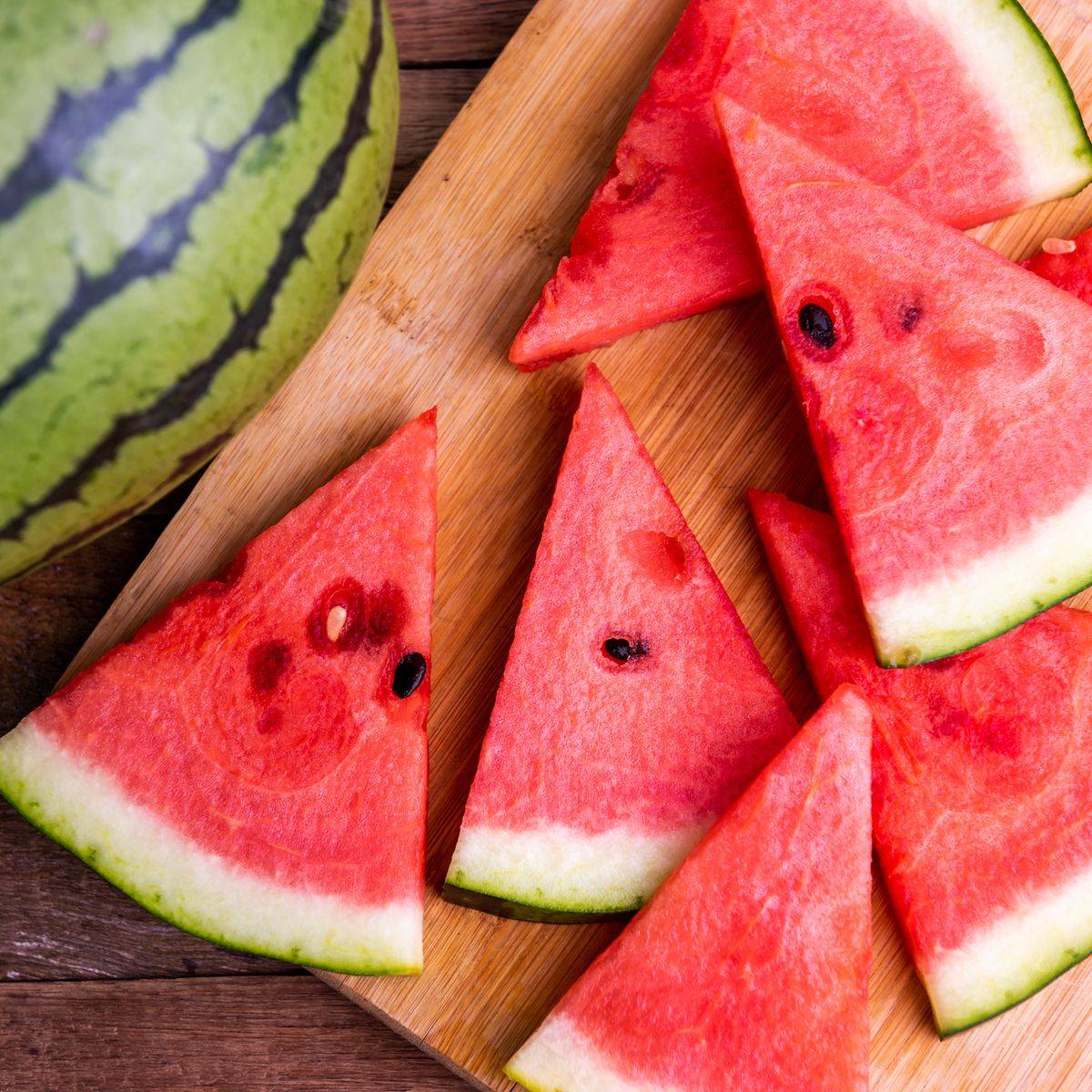 Watermelon: The Iconic Summer Refreshment
Watermelon: The Iconic Summer Refreshment
Watermelon, scientifically known as Citrullus lanatus, stands as the iconic summer fruit, treasured for its sweet, juicy, and revitalizing attributes. With its vibrant red or pink interior, black seeds, and green outer layer, watermelon not only signifies summer but also takes center stage at picnics, barbecues, and poolside gatherings. In this essay, we will delve into the origins, cultural significance, nutritional merits, agricultural influence, and versatile culinary applications of the watermelon, highlighting its remarkable position in the world of fruits.
Watermelon's roots stretch back thousands of years to Africa, where it is believed to have originated. Ancient Egyptians cultivated and savored it as early as 2000 BC, with hieroglyphics in ancient tombs bearing testament to its existence. From Africa, watermelon traversed the globe, making its way to the Middle East, Asia, and eventually Europe through trade and exploration.
Culturally, watermelon holds a special place in numerous societies and traditions. In the United States, it epitomizes summer and Independence Day celebrations, becoming a staple at picnics and gatherings. The "watermelon seed-spitting" contest is a popular and light-hearted activity at such events.
In China, watermelon symbolizes good fortune and prosperity, gracing wedding feasts and other joyous occasions. During the Chinese New Year, sharing watermelon seeds signifies goodwill.
Watermelon is also intertwined with the Muslim tradition of Ramadan. It is traditionally consumed to break the fast, thanks to its high water content, which helps rehydrate the body after a day of fasting, and its natural sweetness, which provides a delightful treat.
From a nutritional standpoint, watermelon boasts numerous health benefits. It is a low-calorie fruit, primarily composed of water, making it an excellent choice for staying hydrated during scorching summer months. Watermelon is rich in essential vitamins and minerals, including vitamin C, vitamin A, potassium, and dietary fiber.
Vitamin C supports the immune system and skin health, while vitamin A contributes to vision and overall well-being. Potassium helps regulate blood pressure and muscle function. The dietary fiber in watermelon promotes digestion and aids in maintaining stable blood sugar levels.
One of watermelon's most distinctive qualities is its innate sweetness, courtesy of natural sugar called fructose. This makes watermelon a guilt-free and delectable way to satisfy sugar cravings while staying refreshed.
Watermelon's versatility in the culinary realm is another testament to its appeal. It can be enjoyed in myriad ways, from the simplicity of slicing and eating it fresh to using it as a versatile ingredient in various dishes and beverages. Watermelon salads, often paired with ingredients like feta cheese, mint, and balsamic vinegar, offer a refreshing and savory counterpoint to its inherent sweetness.
Watermelon smoothies and agua frescas are popular beverages, blending watermelon with other fruits, such as lime or strawberries, to create a delightful and hydrating drink. Watermelon juice serves as a base for cocktails, adding a tropical twist to libations like margaritas or mojitos.
Watermelon is also a favored medium for fruit carving, given its substantial size and sturdy rind. Artists create intricate designs, from flowers and animals to elaborate sculptures, often displayed at festivals, competitions, and special events.
In frozen treats like sorbets and granitas, watermelon's cool and juicy essence shines through. Its natural sweetness makes it an ideal candidate for homemade popsicles, offering a healthy and refreshing alternative to store-bought varieties.
From an agricultural perspective, watermelon cultivation is a significant industry worldwide. It thrives in warm and sunny climates, with leading producers including the United States, China, Turkey, and Russia. Watermelon farming practices can vary, with some farmers employing conventional methods and others embracing sustainable or organic approaches.
Sustainable watermelon farming focuses on conserving water, reducing synthetic chemicals, and promoting soil health. Strategies like crop rotation, cover cropping, and integrated pest management minimize the environmental impact of watermelon production.
In conclusion, watermelon, with its rich history, cultural importance, nutritional virtues, agricultural influence, and versatile culinary applications, remains the quintessential summer refreshment that continues to captivate our senses and gratify our palates. Its juicy, invigorating, and sweet attributes make it a cherished fruit during sweltering summer months, offering a natural means to beat the heat and stay hydrated. As we relish cool, juicy watermelon slices under the sun, we celebrate its exceptional standing in the world of fruits and the pure pleasures of the season.
 blogpay
blogpay























Total Comments: 0